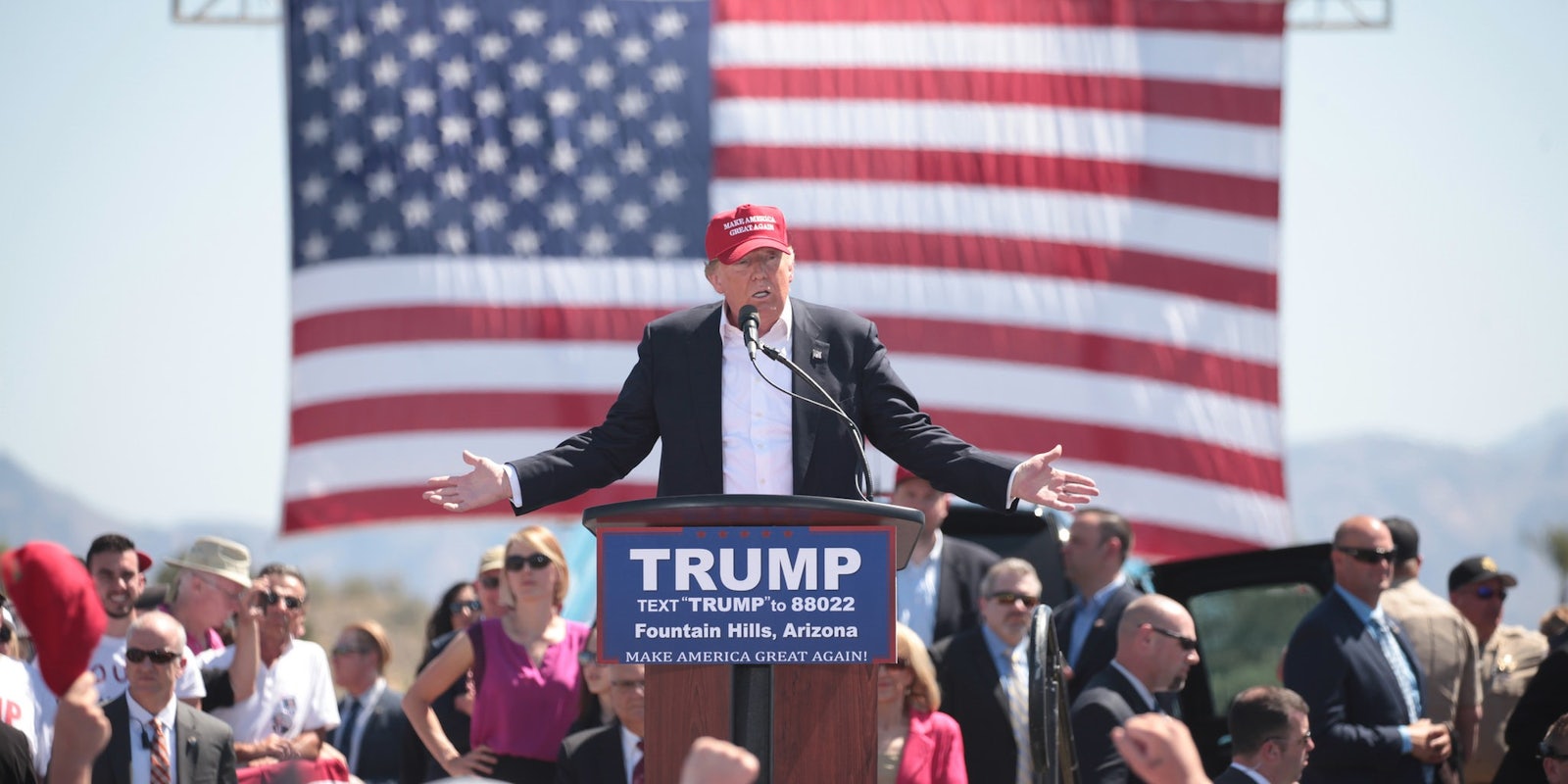As president-elect, Donald Trump has a penchant for claiming personal victory when companies announced plans to create jobs in the United States. And there’s good reason for it.
By claiming credit for job creation that he may or may not have a role in, Trump boosts his political cred and gives the companies a dose of good PR. And while no one can say more American jobs is a bad thing, the predictability of Trump’s claims have become something of a joke.
https://twitter.com/lesleyabravanel/status/818820124211892226
When Trump becomes president on Jan. 20, he’ll be able to claim credit for virtually every job created (or lost, for that matter) in the U.S. during his time as president. But how many jobs can Trump claim as president-elect? Let’s take a look.
Carrier: 730 jobs
In early December, Trump announced that he had saved “a little over 1,100 jobs” at a Carrier plant in Indiana after offering its parent company, United Technologies, $7 million in incentives. The company had originally planned to send 2,100 jobs to Mexico.
Turns out, that number was a few hundred jobs high. Trump apparently included 300 non-union jobs that were never on the chopping block, and the number of union jobs Trump helped save is actually 730, down from the union’s original estimate of 800. And 550 union jobs are still going to Mexico.
Sprint and OneWeb: 8,000 jobs
Near the end of December, Trump claimed credit for Sprint adding 5,000 U.S. jobs and satellite internet startup OneWeb adding 3,000 jobs. Both companies are owned by Japanese conglomerate SoftBank.
The Dec. 28 announcement followed a claim earlier in the month that SoftBank planned to invest $50 billion in the U.S. and create 50,000 new jobs after Trump met with CEO Masayoshi Son. However, SoftBank announced in October, before the 2016 election, plans to invest $100 billion in a technology fund.
Ford: 700 jobs
Trump implied that he was to thank for Ford Motor Company’s decision to scrap a $1.6 billion manufacturing plant in Mexico—a project Trump had criticized—and instead invest that money building cars in Michigan, creating 700 new jobs.
“@DanScavino: Ford to scrap Mexico plant, invest in Michigan due to Trump policies”https://t.co/137nUo03Gl
— Donald J. Trump (@realDonaldTrump) January 3, 2017
In the Fox News article Trump cites in his tweet, Ford CEO Mark Fields credited Trump’s “pro-growth policies” as part of its calculation.
“We’re doing this decision based on what’s right for our business,” Fields told Fox Business Network. “As we think about the investments here in Michigan, as you can imagine, Neil, we look at a lot of factors as we make those. One of the factors that we’re looking at is a more positive U.S. manufacturing business environment under President-elect Trump and some of the pro-growth policies he said he’s going to pursue. And so this is a vote of confidence.”
However, as NBC News reports, the company’s plan was primarily due to market forecasts, which predicted that the smaller cars Ford planned to produce at the Mexico plant wouldn’t sell.
Fiat Chrysler: 2,000 jobs
This one is in a gray area in terms of whether Trump took credit for the jobs. After Fiat Chrysler announced plans to invest $1 billion in its production plants in Michigan and Ohio, Trump tweeted about the news and thanked the company, while linking it to Ford’s plans.
It’s finally happening – Fiat Chrysler just announced plans to invest $1BILLION in Michigan and Ohio plants, adding 2000 jobs. This after…
— Donald J. Trump (@realDonaldTrump) January 9, 2017
Ford said last week that it will expand in Michigan and U.S. instead of building a BILLION dollar plant in Mexico. Thank you Ford & Fiat C!
— Donald J. Trump (@realDonaldTrump) January 9, 2017
So, while Trump didn’t explicitly take credit, he certainly highlighted the news in a way similar to Ford’s announcement. Either way, most of these jobs will be given to robots in the foreseeable future.
Counting the Fiat Chrysler jobs, Trump has taken credit or implied credit for a total of 11,430 jobs. To put that in context, President Obama claimed credit for creating 15 million jobs—over 1,300 times the number of Trump has touted—although the real number could be as low as 10.8 million. Of those 11,430 jobs, Trump can claim real credit for the 730 Carrier jobs. There are currently around 145 million employed Americans in the U.S.
Of course, all of this took place while Trump was president-elect. When he’s actually president, the real work of job creation will begin.


